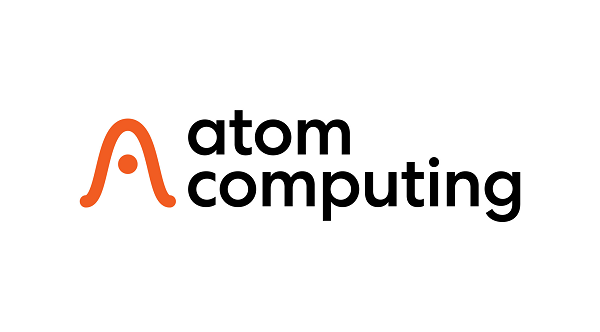
credit: Atom Computing
By Rob Hays, CEO, Atom Computing and Kristen Pudenz, Director of Advanced Research Programs, Atom Computing
Quantum computing will define the 21st century. It’s a once-in-a-generation, paradigm shift in computation performance enabling solutions to problems now considered intractable. With quantum, we expect to implement new kinds of physical world simulations, life sciences research, machine learning and process optimizations to use resources more efficiently, bolster national security and design new drugs and medical treatments.
The U.S. has long led the world in computing technologies and it already has tremendous assets and talent in quantum computing. However, it is very early days for quantum and long-term global leadership is far from assured. All of the leading industrial nations have declared quantum computing to be a strategic priority and are committing massive resources to it. According to a World Economic Forum report, public investment in quantum computing reached $30 billion in 2022 with China leading the way.
Today, the U.S. has more than 100 quantum startup companies, the world’s highest percentage of organizations adopting quantum computing, and the most quantum-related patents filed. This vibrant quantum ecosystem would not be possible without the support and leadership of the U.S. government, which has invested billions in R&D and workforce development programs. The National Quantum Initiative Act (NQI), passed in 2018, successfully catalyzed the U.S. quantum industry and coordination between industry, academia and government.
Over the next five years or so, quantum computing is expected to exit the so-called noisy intermediate-scale quantum (NISQ) prototype era and enter the commercial fault tolerant era – when systems will be robust enough to operate continuously and deliver accurate results, unlocking tremendous value across a broad range of industrial and government use cases. Our growing quantum industry needs continued strong support from the U.S. government and partnership with private investments during this critical period of transition to keep a first-mover advantage in this emerging market.
Here is how the U.S. can maintain its leadership role in quantum computing:
Increase public funding. According to McKinsey & Company, China has committed $15.3 billion in public funds for quantum computing, eight times more than the U.S. and more than double that of European Union governments. China has stated that they cannot lose the next generation of computing leadership and fall behind, as they did in semiconductors. Given these stakes, we need bold action by the U.S. government to close the investment gap in the form of primary research, research grants to private partners, building and purchasing quantum computing platforms for applications research, and deployment of strategic capital to fund long, deep-technology development cycles.
Diversified investment across quantum computing modalities. Since the NQI was established five years ago, a new wave of technologies, such as neutral atoms and photonics, have moved to the forefront of the field with the potential to scale more quickly. These modalities are not supported by current NQI funding because they were not established when funds were distributed. Public funding and support, including the renewed NQI, should be distributed across a broader set of quantum computing modalities to support new technological evolutions and increase our chances of maintaining global leadership. We have seen investment in newer modalities by individual government agencies, such as DARPA through its Underexplored Systems for Utility-Scale Quantum Computing (US2QC) program. These programs are essential for emerging modalities.
 Government as partner and customer. It is critical that the U.S. government be an early adopter and customer of quantum computing systems and/or services and help build the user base by incentivizing agencies and researchers to explore and adopt quantum computation. Purchase of quantum computing time or systems would multiply the effects of funding. Revenue and the U.S. government stamp of approval attract further venture investment in quantum computing companies and feedback into the research ecosystem, giving the technology further boosts in applications development and as an ecosystem. We are seeing increased efforts in this area with agencies like the U.S. Department of Energy, the National Science Foundation, and others issuing more quantum-related funding calls or incorporating quantum technologies into broader funding opportunities.
Government as partner and customer. It is critical that the U.S. government be an early adopter and customer of quantum computing systems and/or services and help build the user base by incentivizing agencies and researchers to explore and adopt quantum computation. Purchase of quantum computing time or systems would multiply the effects of funding. Revenue and the U.S. government stamp of approval attract further venture investment in quantum computing companies and feedback into the research ecosystem, giving the technology further boosts in applications development and as an ecosystem. We are seeing increased efforts in this area with agencies like the U.S. Department of Energy, the National Science Foundation, and others issuing more quantum-related funding calls or incorporating quantum technologies into broader funding opportunities.
Ensuring PhD talent stays in the United States. Experienced PhD-level quantum physicists are rare but essential to carrying the quantum computing industry forward. Many of these PhDs are currently being trained in U.S. universities and companies, but struggle with visa and immigration challenges even as their talents and skills benefit our national and economic security. Favorable U.S. export control and immigration policies to retain scarce talent are required. These experts drive American innovation and their visa status should not be at risk.
Start-up industry voice in policy. Much of the commercial innovation in quantum computing is coming from startup companies. Engagement with representatives from leading start-ups will contribute to better policies. Start-up founders should be invited to have a seat at the table in advisory committees, such as the National Quantum Initiative Advisory Committee, established to advise the President and NSTC Subcommittee on the NQI along with leading academic researchers and government policy makers
Prioritize quantum computing in regional tech ecosystems across the country. Workforce development, job creation, and cross-organization collaborations are required to build a sustainable quantum computing industry in the U.S. that can outpace our global rivals. Regional ecosystems consisting of co-located universities, research labs, and companies are a well-proven strategy to foster a virtuous cycle of innovation. These communities for quantum innovation have already emerged in the U.S. but will require ongoing funding and support from all levels of government to compete in the global economy.
Atom Computing builds highly scalable, gate-based quantum computers with atomic arrays of optically trapped neutral atoms, empowering researchers and companies to achieve unprecedented breakthroughs.
1Source: Global Quantum Intelligence, LLC. 2023.
- SEO Powered Content & PR Distribution. Get Amplified Today.
- EVM Finance. Unified Interface for Decentralized Finance. Access Here.
- Quantum Media Group. IR/PR Amplified. Access Here.
- PlatoAiStream. Web3 Data Intelligence. Knowledge Amplified. Access Here.
- Source: https://insidehpc.com/2023/06/how-the-u-s-can-win-the-quantum-computing-race/
- :has
- :is
- :not
- 100
- 2018
- 2022
- 2023
- 7
- a
- Academia
- academic
- According
- accurate
- Achieve
- across
- Act
- Action
- adopt
- Adopting
- advanced
- ADvantage
- advise
- advisory
- agencies
- ago
- All
- along
- already
- American
- an
- analysis
- and
- applications
- approval
- ARE
- AREA
- AS
- Assets
- assured
- At
- atom
- attract
- base
- BE
- because
- behind
- being
- benefit
- Better
- between
- Billion
- billions
- bold
- bolster
- boosts
- breakthroughs
- broad
- broader
- build
- Building
- builds
- but
- by
- Calls
- CAN
- cannot
- capital
- carrying
- cases
- Century
- ceo
- challenges
- chances
- China
- Close
- collaborations
- coming
- commercial
- committed
- committing
- Communities
- Companies
- company
- compete
- computation
- computers
- computing
- considered
- Consisting
- continued
- continuously
- contribute
- control
- coordination
- country
- creation
- critical
- Current
- Currently
- customer
- cycle
- cycles
- darpa
- Days
- deliver
- Department
- deployment
- Design
- Development
- DID
- Director
- distributed
- double
- drive
- Drugs
- during
- Early
- Economic
- Economic Forum
- economy
- ecosystem
- Ecosystems
- effects
- efficiently
- efforts
- emerged
- emerging
- emerging market
- empowering
- enabling
- energy
- engagement
- enough
- Enter
- Era
- essential
- established
- European
- european union
- Even
- evolutions
- Exit
- expect
- expected
- experts
- explore
- export
- Fall
- far
- feedback
- field
- For
- forefront
- form
- Forum
- Forward
- Foster
- Foundation
- founders
- from
- fund
- funding
- funding opportunities
- funds
- further
- gap
- generation
- given
- Giving
- Global
- Global economy
- Government
- Governments
- grants
- Growing
- Have
- help
- high-performance
- highest
- highly
- How
- However
- HTTPS
- immigration
- implement
- in
- Including
- incorporating
- Increase
- increased
- individual
- industrial
- industry
- Initiative
- Innovation
- Intelligence
- into
- invested
- investment
- Investments
- invited
- issuing
- IT
- ITS
- Job
- jpg
- Keep
- Labs
- Leadership
- leading
- learning
- Led
- levels
- Life
- Life Sciences
- like
- Long
- long-term
- lose
- machine
- machine learning
- maintain
- Maintaining
- many
- Market
- massive
- max-width
- McKinsey
- medical
- more
- moved
- much
- National
- National Science
- national security
- Nations
- Need
- needs
- Neutral
- New
- news
- next
- now
- of
- on
- ongoing
- operate
- opportunities
- or
- Others
- our
- paradigm
- partner
- partners
- Partnership
- passed
- Patents
- percentage
- performance
- period
- PhDs
- physical
- Platforms
- plato
- Plato Data Intelligence
- PlatoData
- policies
- policy
- possible
- potential
- president
- primary
- priority
- private
- Private Investments
- problems
- process
- Programs
- prototype
- public
- purchase
- purchasing
- Quantum
- quantum computers
- quantum computing
- quickly
- R&D
- Race
- range
- RARE
- reached
- regional
- renewed
- Representatives
- require
- required
- research
- researchers
- Resources
- Results
- retain
- revenue
- Risk
- rivals
- rob
- robust
- Role
- s
- scalable
- Scale
- Scarce
- Science
- Science Foundation
- SCIENCES
- security
- seeing
- seen
- Semiconductors
- Services
- set
- shift
- should
- since
- skills
- So
- Solutions
- Start-up
- start-ups
- startup
- stated
- States
- Status
- Strategic
- Strategy
- strong
- Struggle
- subcommittee
- Successfully
- such
- support
- Supported
- sustainable
- Systems
- table
- Talent
- talents
- tech
- technological
- Technologies
- Technology
- than
- that
- The
- the world
- their
- These
- they
- this
- Through
- time
- times
- to
- trained
- transition
- tremendous
- u.s.
- U.S. government
- union
- United
- United States
- Universities
- unlocking
- unprecedented
- use
- User
- value
- venture
- very
- vibrant
- visa
- Voice
- was
- Wave
- Way..
- we
- were
- when
- which
- will
- win
- with
- without
- Workforce
- Workforce Development
- world
- world’s
- would
- years
- zephyrnet












